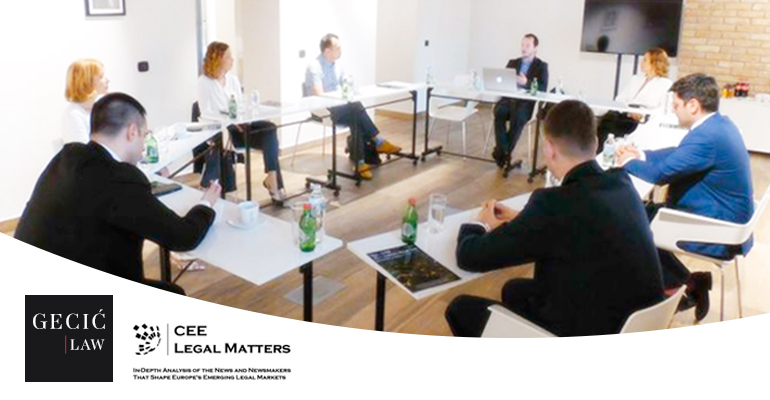

CEE Legal Matters, a leading source of news and analysis on Europe’s emerging legal markets, recently organized a round table to discuss the legal services market in Serbia. The event hosted an elite gathering of senior and managing partners from local and regional law firms and the in-house counsel of Henkel. Gecić Law Partner, Bogdan Gecić participated in the discussion, which elaborated on the overall status of the market, including growth trends, the breakdown of the industry, fee structures, new upcoming legislation and expectations for 2016 / 2017 and the challenges facing the industry in the future. In particular Gecić commented on the increasing amount of legal activity in the areas of State Aid, foreign direct investments (FDI) and client expectations, talent retention and the challenges involved in building a successful law firm in the Serbian market.
With the recent government elections passed, the Serbian economy has stepped up a beat with foreign investors expecting stability and increased FDI. Recent transactions, including the sale of assets of Železara Smederevo, the leading Serbian producer of steel, are a testament to that fact. In addition to FDI, the Serbian Competition Authority has intensified its activities over the last year in a number of areas with enforcement measures on the rise. With Chapters 23 and 24 of the accession process opened, Gecić noted “this will mean further harmonization in terms of legislation and additional interest on the EU Comission’s part in high profile state aid cases, something we have already witnessed.” With Serbia’s current approached, which is primarily focused on attracting greenfield and brownfield investments via subsidies, the effects of such investments can be significant. Gecić elaborated by explaining: “We only need three or four big transactions to change the landscape drastically.”
Law is not just a practice, it is a business as well. In this rapidly changing market clients have become more sophisticated and billing has become increasingly more difficult for commodity work. This impacts partnership structures, how client expectations are managed, talent retention and the demand for sophisticated technology to protect sensitive data and information. With a Serbian market that is, according to Gecić, “completely unsaturated,” there is plenty of room for opportunity for firms that take the right approach to these business issues.
A full report on this round table discussion was published in the June 2016 issue of CEE Legal Matters Magazine and is available in electronic form on the following link.